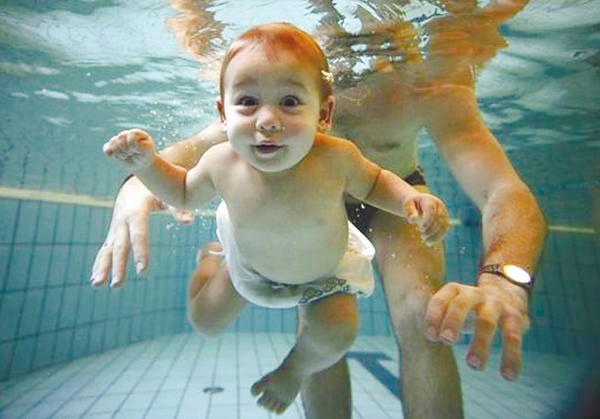TRAVELLING with your children can be challenging, especially if they are below the age of five. While we often think that we have covered all the bases in meeting our children’s needs, the question remains: Are we vigilant enough to ensure their safety and well-being while on the road?
Sunway Medical Centre, Sunway City (SMC), Head of Accident and Emergency Department, Dr Lee Soon Han, highlighted the most common travel-related injuries or illnesses among children:
- Motor vehicle accidents
- Falls resulting in cuts, bruises or open wounds
- Febrile or respiratory illness due to viruses
- Water-related injuries, including drowning
- Diarrhea and vomiting from food poisoning
To lower the risk of such incidences, he advises parents to use booster or car seats and seatbelts correctly, considering the child’s age, height and weight.
To make sure to wear water safety devices during swimming, with close adult supervision, and to ensure hygienne practices, such as consuming clean water and proper food while maintaining sterility of milk bottles.
First aid needs and knowledge
Essentials, such as first aid kits, are something every parent should prioritize when they travel with children.
Lee said the kit should consist of items such as paracetamol for fever or pain, oral rehydration solution, cough and cold medications like antihistamines, and inhalers for children with asthma.
There should also be basic items for wound care, such as gloves, gauze, antiseptic wipes, band-aids and adhesive tape as well as a thermometer.
In addition, it also helps if parents are aware of the two and don’ts if their child suffers from motion sickness or feels discomfort due to the difference in pressure while traveling.
Tips for motion sickness
- Stay hydrated
- Avoid heavy meals, instead, consider eating and drinking in small amounts, regularly
- Avoid reading or using any screen devices during the ride
- Encourage sleep during the ride or flight
- Tips for pressure in the ear
- This can be balanced by swallowing or chewing
- Babies and young children should be encouraged to nurse or suck on a bottle
- Older children can have snacks or chew gum
- Bring along familiar toys the child is fond of for comfort
As for children with chronic heart or lung disease, traveling to destinations with different climates or altitudes may be risky. Parents should consult their doctors before traveling.
“Dress appropriately, with more layers at lower climate destinations while for hotter locations, sunscreen should be applied regularly to avoid sunburn,” he added.
Be wary of what your child consumes
Amid the array of delicacies waiting to be sampled while on holiday, it is best to always bear in mind that what you consume may not be suitable for a child’s digestive system.
According to SMC’s Consultant Emergency Physician Dr Nur Elayni Borhan, diarrhea and vomiting are among the most common illnesses suffered by children.
“Ensure your child is taught to follow safe food and water practices. Frequently wash hands to prevent foodborne and waterborne illnesses,” she advised.
“For infants, breastfeeding is the best way to reduce risk while keeping vaccinations up-to-date is essential, considering the heightened risk of various vaccine-preventable diseases during travel.”
Most importantly, children should avoid swimming in any fresh, non-chlorinated water such as rivers, ponds or lakes, as they may be contaminated with diseases that can be transmitted to the child if the water is ingested.
She said the best treatment for diarrhea is to consume plenty of fluids. Oral rehydration solution may be used to prevent dehydration, especially if the child is also vomiting.
“If your child appears to be dehydrated, has a fever or bloody stool, seek medical attention immediately.”
Staying alert on allergies
According to Nur Elayni, children with food allergies, planning is the key to making your trip safe and enjoyable. Always stay alert, take necessary precaution and all essential medications.
Bring a medical kit with your child’s medication, including their epinephrine pen. Do this no matter how close or short the trip is.
Pack safe snacks and meals in case there are no safe restaurants.
If you are going to a non-English speaking country, make sure to translate information about your allergy. Give this written information to those preparing your food to help them understand your child’s needs.
If your child has a history of severe allergies, take note of the allergy policies on the airline and at the hotels. Every airline or hotel is different, and they need advance notice to make accommodations.
Research restaurants or grocery stores which carry products safe for your child.
Holidaying with a peaceful mind
Nur Elayni also advised bringing some topical medication such as antiseptic cream, mentholated or medicated topical ointment – anything you are used to, from home.
“You know your children, so bring the things that would benefit them. Avoid introducing new things to them.”
Meanwhile, Lee urged parents to be aware of accessing emergency medical treatment when needed.
“Before embarking on your journey, identify all important healthcare facilities at your destination and get advice on available local medical services from hotels or tour company representatives. Crucially, ensure that any travel insurance policies purchased for the trip cover child travelers and include provisions for medical repatriation if the need arises.”
This article was contributed by Sunway Medical Center at Sunway City.
Comments: letters@thesundaily.com









